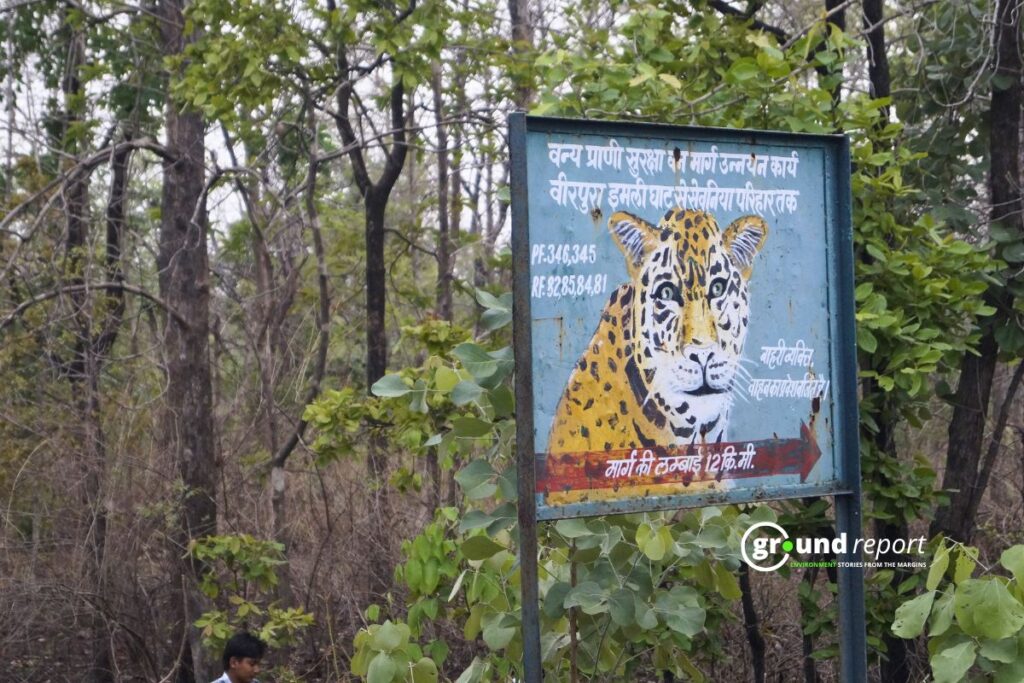Madhya Pradesh’s two newest tiger reserves Ratapani and Durgavati are struggling with serious administrative gaps. Ratapani was notified eight months ago and Durgavati two years ago, yet neither has a field director or enough support staff. This lack of leadership is putting both reserves at risk and reflects a wider staffing crisis in the state’s forest department.
According to the annual report of Madhya Pradesh’s Forest Department, there are massive vacancies at every level from officers to field staff across the state. This shortage is not only affecting administrative functions but has also become a serious threat to wildlife conservation.
Leadership Vacuum
Ratapani Tiger Reserve was inaugurated by Chief Minister Dr. Mohan Yadav in December 2024, yet no field director has been appointed yet. Similarly, Durgavati Tiger Reserve, established on September 20, 2023, in Sagar-Damoh, also has this crucial position vacant.
The field director position is considered extremely important in the Indian Forest Service. These officers often hold the rank of Chief Conservator of Forests. Their roles are not limited to wildlife conservation alone but also handle responsibilities that include administration, law and order, and financial decisions. Their absence severely affects policy formulation and strategic planning processes.

Wildlife activist Ajay Dubey expresses concern, saying, “Many reserves still don’t have full-time field directors. The field director plays a crucial role in shaping policy and strategy. If the position is vacant or held as an additional charge, supervision inevitably suffers. While the DFO’s work on the ground is important, full-time leadership is essential given the complexity of managing a reserve.”
Looking at the Madhya Pradesh Forest Department’s structure, the situation appears even more serious. Out of 51 sanctioned posts for Chief Conservator of Forest in the state, only 8 officers are currently working. This figure shows that over 84 percent of positions at this critical level are vacant.

Of the total 296 authorized positions in the Indian Forest Service, only 175 are filled, meaning approximately 41 percent of posts are vacant. The State Forest Service situation is even worse, with 57 percent of 359 positions remaining empty. Dubey sheds light on the situation, saying, “Currently, many reserves are running on additional charge. For example, Pench doesn’t have a full-time field director; the Deputy Director is handling this responsibility there. Similarly, additional charges are being given in Chhatarpur and Chhindwara to keep things running. In such circumstances, naturally both strategy and implementation suffer.”

Most concerning is that gazetted posts like budget controller, legal advisor, technical officer, and assistant surgeon are completely vacant. This situation is seriously affecting the department’s overall functioning.
Porous to Poaching
The ground-level situation of Madhya Pradesh’s forest personnel is even more serious. Out of 20,670 sanctioned posts for field staff, only 14,387 positions are filled. This means approximately 6,283 posts are vacant, indicating a shortage of nearly 30 percent. This figure is not just a number but a clear indication of serious surveillance gaps in forests.
Taking Jabalpur district as an example reveals that the problem has taken an even more serious form here. In this district with approximately 12,700 square kilometers of forest area, only 160 guards are deployed out of 403 sanctioned forest guard positions. Similarly, Balaghat district has 8,100 square kilometers of forest, where approximately one-third of positions remain vacant.

Nitish Agarwal, who works on vulture conservation, points to the serious consequences of this situation. He explains, “When ground staff is insufficient, one guard has to handle multiple beats. The ideal situation is that one guard should be able to completely cover one beat in a day. Due to shortages, either the guard leaves some areas uncovered or can only patrol halfway. This is the gap that hunters and illegal loggers take advantage of.”
This shortage directly impacts patrol frequency and the ability to respond to threats promptly. As a result, large forest areas become vulnerable to illegal activities. Additionally, insufficient staff increases additional workload and stress on forest personnel. Dubey says: “Lack of facilities and stress affects their work. Stress reduces dedication, increases physical and mental problems, and weakens their work efficiency. Therefore, it’s necessary to keep beat guards and ground staff capable and stress-free.”
Highlighting this issue, Dy. Director of Satpuda Foundation Mandar Pingle says this is a kind of ‘butterfly effect’, where small shortages gradually affect the entire system. Due to clerical staff shortages, every task from preparing census reports to releasing budgets gets delayed.
Mandar believes that rapid administrative decision-making and political interference are one reason, but this situation exists more or less in every government department. “However, today’s new generation doesn’t see the forest department as a good career option. This could also be a reason behind this shortage,” Mandar added.
“No work can progress”
The shortage of clerical staff in the forest department is also a matter of serious concern. Across the state, out of approximately 3,430 sanctioned posts, only 1,986 are filled, meaning about 1,444 positions are vacant. In many districts, this situation is even more serious. Districts like Jabalpur and Khandwa have 30-40 percent vacant positions.

Wildlife conservationist Mandar exposes the hidden aspects of this problem. He says, “No work can progress without documentation and accounting. Whether it’s passing a simple order, creating a project proposal, processing employee salaries, or maintaining expense accounts, everything depends on clerical staff. If such positions are vacant on such a large scale, every process will be delayed.”
Activist Dubey also draws attention to other aspects of resource shortage. He adds, “Along with staff, there should be vehicles, diesel for patrolling, and modern equipment for monitoring. The example of Satpura is before us, where vehicles couldn’t run due to diesel shortage and patrolling was affected.”
He also says that the weakness of the informant system is a major obstacle in timely detection of crimes. “The department doesn’t have a strong relationship with the local community. If the informant system is strong, crimes can be prevented before they occur.”
Despite all these problems, experts believe the department’s efforts are commendable. Mandar says, “Despite less staff, the department has done good work in many places. This is praiseworthy. But until vacancies are filled, efficiency will remain limited.”
It is clear that immediate action is needed for Madhya Pradesh’s Forest Department. The success of newly formed tiger reserves like Ratapani and Durgavati depends on how quickly proper leadership and adequate staff are arranged in these institutions. This will be an important step toward wildlife conservation.
Support us to keep independent environmental journalism alive in India.
Keep Reading
Small Wild Cats in Big Trouble: India’s First National Report Released
After Tragedy, Families Face Delays in Tiger Attack Compensation
Stay connected with Ground Report for underreported environmental stories.
Follow us onX, Instagram, and Facebook; share your thoughts at greport2018@gmail.com; subscribe to our weekly newsletter for deep dives from the margins; join our WhatsApp community for real-time updates; and catch our video reports on YouTube.
Your support amplifies voices too often overlooked, thank you for being part of the movement.








